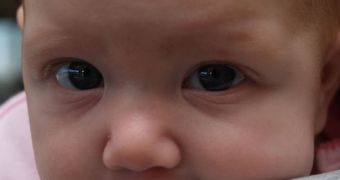The environmental conditions and the food we receive in early life – prenatal or early postnatal, will influence our individual development and our reproductive success later on, concluded a team of researchers at the University of Sheffield.
For the study, the team led by Dr Ian Rickard from the Department of Animal and Plant Sciences at the University, combined historical agricultural data with detailed demographic church records on births in the 18th century in Finland, so that they could investigate the effect of food availability around the time of birth, on the reproductive success of 927 men and women.
They chose a study population presenting natural mortality and fertility rates representative for many preindustrial societies, and coming from different social backgrounds.
The results showed that in men and women born in poor environments there was a connection between food in very early life and the chances of marital prospects, probability of reproduction and offspring viability.
As for the offspring of richer families, there was no such connection.
According to available data, only 50% of the men and 55% of the women born in a year in which both rye and barley yields were low, managed to have any children during their entire lives.
As for the years in which both yields were above average, 97% of men and 95% of women born then, had children.
These statistics show that the food received during prenatal and early postnatal life is crucial for the development of the reproductive system, especially in people with limited resources.
“Our results show that the food received by children born into poor families had an influence on their later reproductive success,” said Dr Rickard.
“These results have implications for our understanding of early environmental effects on human and animal health and will help shed light on our current understanding of fertility and whether it is influenced by individual or social factors."”
The research was published online this month in the journal Ecology and it is the first study of its kind that shows that early life food can seriously influence the life-long fertility of individuals.

 14 DAY TRIAL //
14 DAY TRIAL //